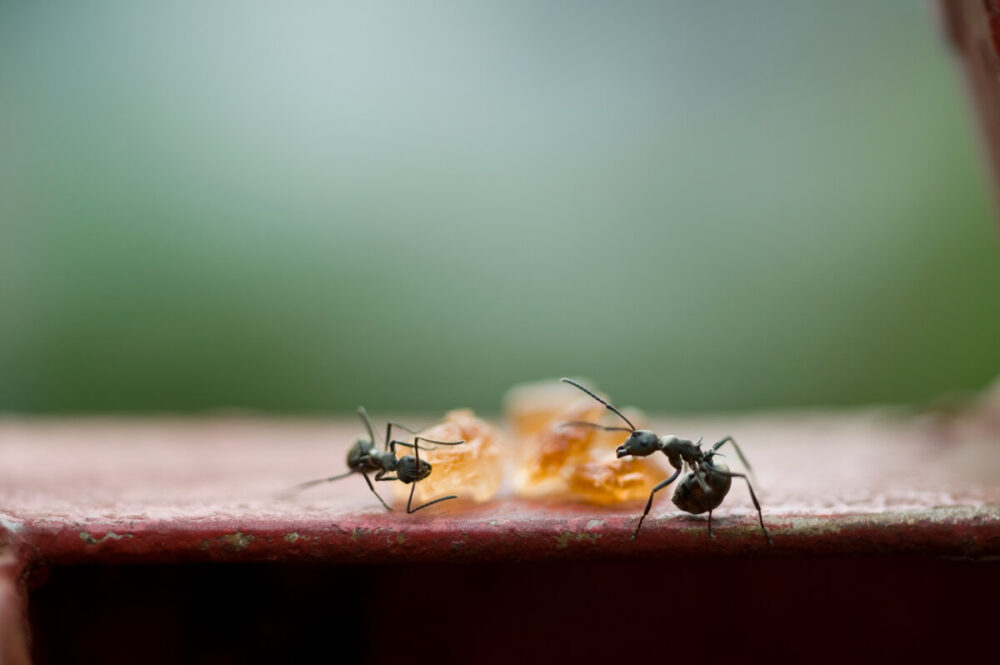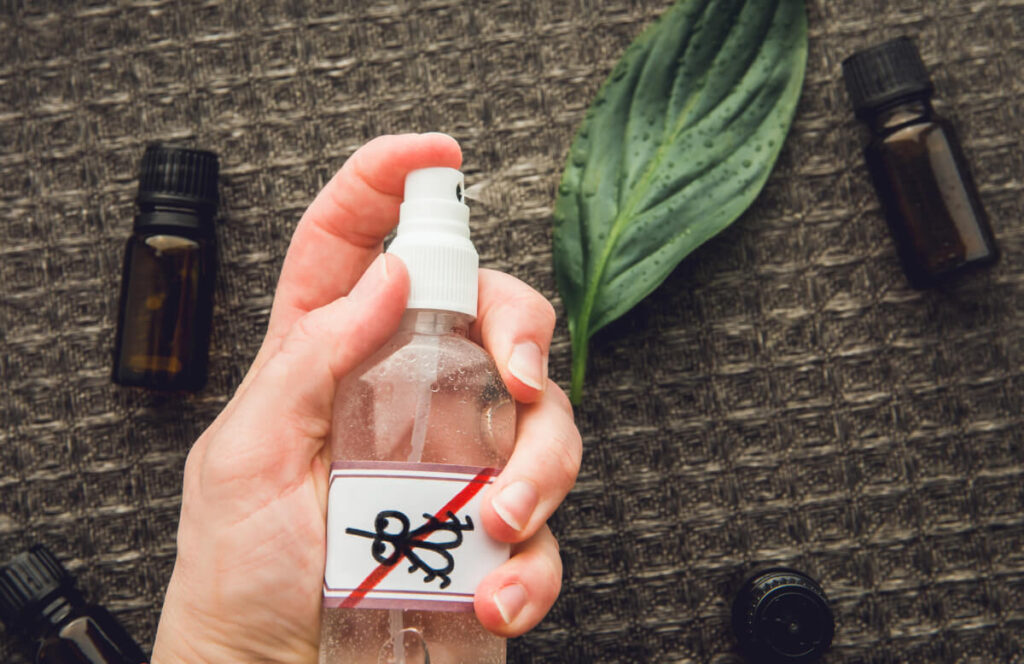


Ants may not be as big of a health and safety threat like other pests, but they’re still a nuisance that can plague your home. If left unchecked, many common species of carpenter ants – or black sugar ants, as most common ant species are collectively known – can infest your home, establish their colony, and, true to its name, contaminate your kitchen and food pantry. If you find yourself dealing with swarms of black sugar ants or any type of ants in your home, the best solution is to eliminate them as soon as possible.
So how do you kill black sugar ants surrounding your home? You have three options: use natural home remedies, try DIY pest control products, or contact a professional to eliminate the problem for you. Here are the different ways you can try to eliminate black carpenter ants in your property, as well as other tips that can help you prevent future infestations from happening.
If black sugar ants are already in your house and proving to be annoying pests, you should try to eliminate them from your property as soon as possible. This can minimize the chances of them finding their way into most of your pantry supplies and contaminating your food, as well as giving them less time to breed and make the infestation worse.
When it comes to killing black sugar ants, you have three options for ant killer solutions, each with their own level of consistent success: home remedies, DIY pest control, and professional pest control services.
These are the more organic DIY solutions if you don’t want to deal with the harsh chemicals of DIY pest control products that can leave residue that can harm children and pets in your home. Keep in mind that most of these solutions can have varying levels of success, so you may need to try several remedies and compare which works best.
Ants supposedly hate the scent of peppermint because of the scent of mint, making it a natural insecticide that not only repels them but also supposedly destroys the scent trail that ants leave behind for other ants to follow. Odorous house ants rely on their sense of smell to keep their trail and communicate the location of food sources to other worker ants in search of food, so scents from essential oils like peppermint can throw them off.
Planting peppermint plants around your house could deter ants from entering your property, but you can also try using essential oils. Either use it in a scent diffuser or mix up to 20 drops of peppermint essential oil with two cups of water and use a spray bottle to spray the mixture onto your doors, windows, and other potential entry points in your home.
Aside from peppermint, you can also use other essential oils like tea tree oil, citrus (which contain D-limonene, a natural substance toxic to ants), citronella, eucalyptus, and cinnamon. The scent can wear off, so you’ll have to spray the area often depending on factors like ventilation.
Ants supposedly hate the smell of vinegar because of its strong scent, which can interfere with the scent of their pheromone trails and their ability to communicate with other ants. Mix equal parts of water and white vinegar and spray it in areas where they travel.
You may not like the smell of vinegar around your home, but this goes away for most people once the mixture dries. However, ants can still smell it even when most people can’t. Just like essential oil sprays, you should repeat the process if you start to see ants again.
Though most ants may make a beeline (or rather, an ant trail) toward your sugar, black sugar ants may stay away from your spice cabinet if you have cloves, bay leaves, ground pepper, or garlic in your stash. These scents are supposed to irritate ants and affect their pheromones and ability to leave scent trails.
Sprinkle these spices in areas that ants frequent. Some of these spices also deter other pests. For instance, a bay leaf deterrent can also deter cockroaches, moths, and flies. However, some types of beetles, mites, and leaf-eating bugs are attracted to ground pepper and garlic, so avoid these if you have a high number of other pests on your property.
Diatomaceous earth is a form of silicon dioxide made from the fossils of diatoms, which is a form of plankton. It’s often used for filtering water, industrial insulation, or for medicinal purposes.
While food-grade diatomaceous earth is safe for humans, it can kill pests like ants. It’s not poisonous, but it can absorb the oils and fats of ants and completely dries them out.
You can buy diatomaceous earth in hardware stores, specialty stores, or online. Sprinkle diatomaceous earth in areas ants frequent.

Chemical ant control product solutions are another solution for those who find home remedies ineffective. You can find various brands and types of DIY pest control products in hardware stores or online, so you can try those specifically designed for ants or multi-purpose products. Make sure you follow the label instructions for the products you use to help get the best results.
However, keep in mind that not all DIY pest control products work the same way. There are different kinds of pesticide substances, and some are more potent than others. Too much non-fatal exposure to some types of insecticides can also help insects build a resistance to insecticide chemicals, similar to the old pesticide substances like dichloro-diphenyl-trichloroethane (DDT).
Keep in mind that these insecticides have their limits. Some can kill a handful of ants or deter ants from crawling through a certain area of your home, but if it’s not addressing the infestation itself, the problem of ants may continue to return.
Ant bait can either be sold for granular baits or for liquid ant bait. To use these, you have to mix commercial baits or any sweet bait like sugar or corn syrup with a toxic insecticide to kill ants that come into contact with the bait.
Ant bait stations are placed in strategic locations for ants to find. Scout ants find the bait, bring some of it back to feed the colony, and then have more worker ants collect the rest of the bait. Eventually, the worker ants and all the ants that have come into contact with the bait will be killed by the poison.
This has the advantage of killing all ants that consume the bait, unlike pesticide sprays that only kill the worker ants that leave the colony. Depending on how much of the bait was consumed, this can kill ants inside the colony, even those that weren’t part of the colony.
However, ant bait stations can also have their disadvantages. The bait needs to be close to where the ant colony is or where ant activity is consistent. If the bait station is far, a worker ant that comes into contact with the bait can die before reaching the colony.
That’s why it’s important to know how to locate ant nests. It’s also important to note that while bait like sugar could attract black sugar ants, there’s no guarantee that this will attract the right ant species infesting your home.
A popular and versatile option, insecticide spray is a common solution for pests like ants. Simply spray the insecticide at an ant trail or any potential opening towards their colony. This can kill nearby ants that come into contact with the spray while also affecting any scent trail or pheromones used to communicate with ants. Be sure to check the product labels and see if the insecticide is effective on carpenter ants.
However, the effects of insecticide sprays are very limited relative to the colony. The average healthy queen ant can lay hundreds of thousands of eggs in a matter of days. Insect sprays can kill the worker ants that were sprayed, but colonies are often hidden deep underground or within your home’s walls. This means sprays don’t really solve the infestation problem and only kill the handful of ants visible outside the colony.
A relatively new product on the market, ant chalk works by drawing around or near the areas ants frequent. The chalk contains deltamethrin, an insecticide that can kill ants, destroy the ant trails by disrupting the pheromone scent, and repel ants away from the treated area.
Just like insecticide sprays, however, it doesn’t necessarily solve the infestation problem. Ant chalk can kill and repel black sugar ants, but this doesn’t stop ants from finding an alternative route. On top of that, ant chalk products are illegal in most areas in the United States.
If the black sugar ant infestation is plaguing your property, your best solution is to contact professional pest control specialists to handle the infestation for you. Professionally-trained pest control technicians understand the latest in pest control methods, including where black sugar ants (and many other kinds of ants) frequent and where they’re most likely hiding in your home. Compared to DIY solutions, professional pest control services provide you with the following benefits.
Professional pest control solutions focus on killing the entire colony, regardless of the types of ant species they’re faced with. This not only includes the black sugar ants you see on trails, but also those hidden within the colony, including the queen ant and her eggs. This is to eliminate the entire population, stop the colony’s exponential growth, and remove the solution entirely.
In comparison, most DIY ant control solutions focus only on the ants visible outside of the colony. This doesn’t necessarily solve the problem and leaves the door open for ants to find alternative solutions that can continue to inconvenience your household.
Most DIY solutions have their own pros, cons, and effectiveness, so it’s up to you to undergo trial and error to see which method has given you the best results. The best professional pest management companies, on the other hand, have years of experience and pest management professional specialists that have explored and adapted the latest effective methods in eliminating pests like ants.
When they come to your property to deal with the ant infestation, you know they’re bringing to the table treatment methods that effectively work. If you’re hiring based on their reputation and history of successful pest control services, you can be rest assured knowing that they’re using the best method of pest control for your home.
Most DIY solutions have the same cookie cutter instructions that aren’t necessarily applicable to all homes. This means that even if all users follow the same usage instructions, not everyone’s going to get the same results.
Professional ant control specialists, on the other hand, can handle different kinds of pest and insect extermination methods and can deal with infestations of all types. With their training and experiences, they can recommend the best solution tailored to your home to ensure you get the best results from their service.
Although not all pest control companies offer this, the best service companies to work with can provide you with integrated pest management solutions. Rather than just showing up, using professional-grade chemicals to kill ant colonies, and call it a day, specialists that provide integrated pest management can help you extend the protection of your home for much longer.
Aside from the usual inspections and pesticides, integrated pest management also provides recommendations for repairs and practices households can use to reduce the risk of redeveloping an ant infestation after their service is done.
Prevention is always much better than cure. Black sugar ants tend to thrive in homes where they have everything they need to grow: food source, water source, and a hidden place where their colony can remain undisturbed. Here are some easy ways to prevent an infestation by making your home more difficult for them to survive in.
If you’re getting ant control services from PermaKill Exterminating, our pest control specialists can note down the vulnerable areas in your home and provide more specific recommendations to prevent infestations that are catered to your home.
Black sugar ants tend to go after your sugar and other sugary foods, but they won’t say no to other sweet foods or the rest of your food pantry if you leave it available for them to take. Cutting off their food sources is a good way to make it harder for ant colonies to thrive in your home. A few ways to do this include:
Black sugar ants tend to frequent your kitchen for its food source, but they can also use other areas in your home as sources. Keep both these rooms clean and dry and then ensure the rest of the house is clean to prevent providing alternative sources of food and water.
Black sugar ants also need water to survive, and your home may have plenty of sources ants can use to thrive. Some ways to prevent this include:

Black sugar ants are a common household pest that can be a nuisance to your property, but there are several options to consider to keep them away from your home. DIY solutions can take some trial and error, so consider all your options and find which one can effectively treat your ant infestation. But for a convenient and effective pest control solution that eliminates the entire colony, your best solution is to work with a pest control company you can trust.
PermaKill Exterminating is the smartest and safest choice for pest extermination in your home or business. We have the right tools, methods, and techniques to prevent and stop all kinds of pests and insects from invading and taking over your space. Contact PermaKill Exterminating today to receive a free quote on our services.